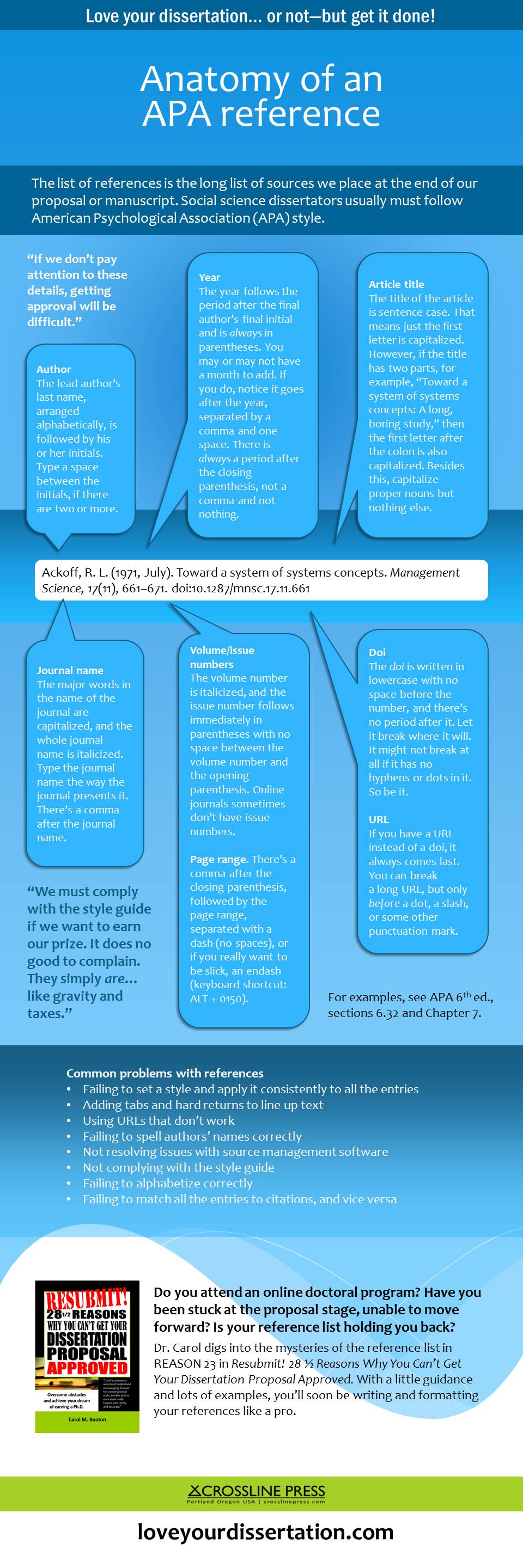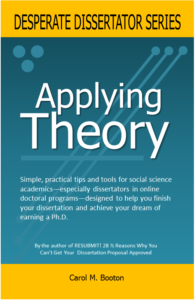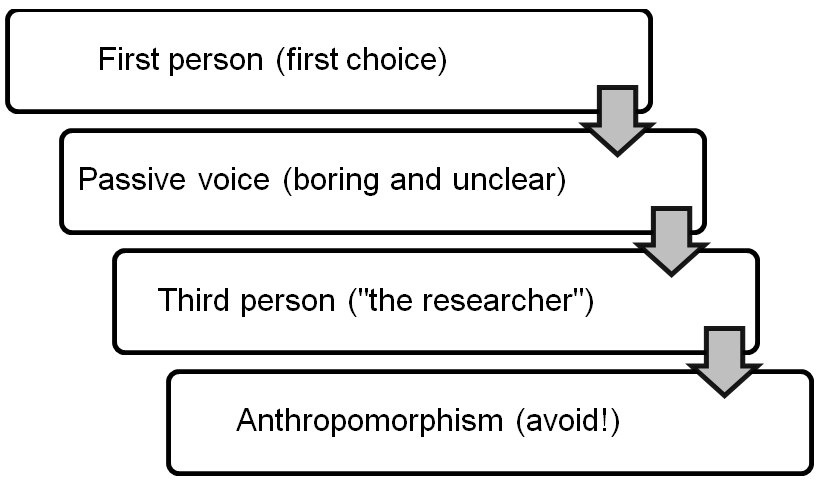APA stylists prefer first person (I reviewed the literature) to third person (the researcher reviewed the literature), and certainly, to passive voice (the literature was reviewed). The main reason for using first person rather than third person or passive voice is to achieve clarity in our writing. However, the use of first person in academic writing seems to be a controversial topic. Here are my thoughts on writing in first person in APA style.
What is first person?
First person writing means using personal pronouns—for example, singular pronouns such as I, me, mine, and my, and plural pronouns such as we, our, and us.
Students often believe it is not acceptable to use “I” in their writing. Teachers sadly sometimes perpetuate the belief, cautioning students that avoiding first person will help their writing be more objective and scientific. However, using first person actually helps position you in your research, which is especially important if you have chosen a qualitative methodology. How will you describe your role in the research process without using the word “I”?
I have edited many papers in which dissertators opt for third person (the researcher interviewed the participants), as if the researcher suffered from dissociative identity disorder. I’ve even seen some qualitative researchers refer to themselves as “the researcher” when they talk about “bracketing,” which to me is the penultimate first-person activity. This avoidance of first person defies logic.
What choice does the poor dissertator have? If the dissertator is not allowed to use first person, it is impossible to avoid using third person or passive voice. If the dissertator is not allowed to use passive voice, then the only alternative is to use third person. This false prohibition is a mild tragedy, in my opinion, a step backward in my fight against obfuscation.
We know that APA stylists prefer first person to passive voice (see APA 6th ed., sections 3.09 and 3.18). Therefore, we would say “I conducted a study” rather than “A study was conducted.” Any time we are talking about actions we took to collect data, analyze data, and so forth, APA style indicates we should use “I collected, I analyzed.” This is appropriate use of first person.
Some dissertators are part of a research team. If that applies to you, it makes sense to describe your research process and findings using first person plural (e.g., we administered a survey to parents …).
“This study” versus “my study”
On a related topic, a client once asked me about writing “this study” versus “my study.” It’s not wrong to say “my study,” “my questions,” “my analysis,” but this style of writing focuses the discussion unnecessarily on the researcher, when the focus should be on the research. I recommend using first person for clarity, not to be the center of attention. I think it’s important to “own” our research, but not make ourselves the focus of the research. We should strive for both clarity and objectivity.
In my experience, some institutions, reviewers, and committees will not accept first person, despite APA style guidelines. When I’m editing, I rarely know the preferences of the committee, unless I happen to receive a paper containing reviewers’ comments. My goal is to adhere to APA style without drawing unnecessary attention to it. I try to avoid anything that distracts the reader. It’s like when you are watching a movie, and something happens in a scene to make you realize, hey, I’m watching a movie. The suspension of belief is lost, and the magic is gone. I want your readers to stay with your story and feel the magic.
I edited a paper from a dissertator whose Chair delayed feedback for months. I did the first three chapters (using first person) and then as the months passed, I forgot all about the project. Suddenly, there it was again, in my inbox, with a note from the dissertator: My Chair wants me to use “the researcher” instead of first person. Oh, and no passive voice. The Chair’s reasoning was that APA prefers the active voice. However, she failed to note that she preferred third person. Logic may take a holiday, but follow your Chair’s preferences. Whatever your Chair says, that is what you should do. Then pray to the dissertation gods that your Chair isn’t replaced partway through your program!
The APA style dilemma
If you aren’t allowed to use first person AND you’ve been told to avoid passive voice, what can you do? Normally, I would say your next best option is to employ anthropomorphism: for example, the survey collected…, the paper discusses…, the study explored… However, if you must comply with APA style guidelines, this option won’t work. Chicago style users present papers rife with anthropomorphism, but the standards are different for those of us who follow APA style. See my blogposts on avoiding anthropomorphism and passive voice.
For APA users, your next best option is to use third person, which means referring to yourself as the researcher. You’ve probably seen this awkward construct before in other researchers’ work and wondered, what the heck? Yep. If our reviewers will not allow us to use first person, that is what we get. Remember, always check with your Chair, Committee members, and other reviewers to make sure they accept first person. You can bolster your case for using first person by referring them to sections 3.09 and 3.18 in the sixth edition of the APA publication manual.
For APA users, here is the hierarchy:

First person writing is clear, direct, and lively. You will soon wonder how you managed without first person. After you switch to first person, anything else will sound tired, murky, and a little suspicious. I encourage you to try it. If you want to fight for first person with your Chair and Committee, I support you! Arm yourself with APA page numbers and don’t give up. Good luck.
Sources
American Psychological Association (APA). (2010). Publication manual of the American Psychological Association. Washington, D.C.: Author.

Print version
Kindle version






